In this tutorial, you'll learn some of the best keyboard shortcuts for PowerPoint that will help you work faster and more efficiently. Keyboard shortcuts allow you to perform tasks without constantly using the mouse, saving you time and effort. In the following paragraphs, you will learn how you can significantly increase your productivity with simple combinations. Whether it's selecting and multi-selecting objects, maintaining proportions when zooming in or out or moving content, I'll show you the best tricks.
Key findings
- Keyboard shortcuts allow you to work more efficiently.
- The control key is crucial for selection and multiple selection.
- The Shift key preserves proportions when changing objects.
- Using the Alt key can help to achieve more precise positioning.
Step-by-step guide
If you want to work efficiently in PowerPoint, start by using the Ctrl (Control) key. By holding this key and moving the mouse wheel, you can zoom in and out of the slide. This allows you to identify and select objects outside the visible area.
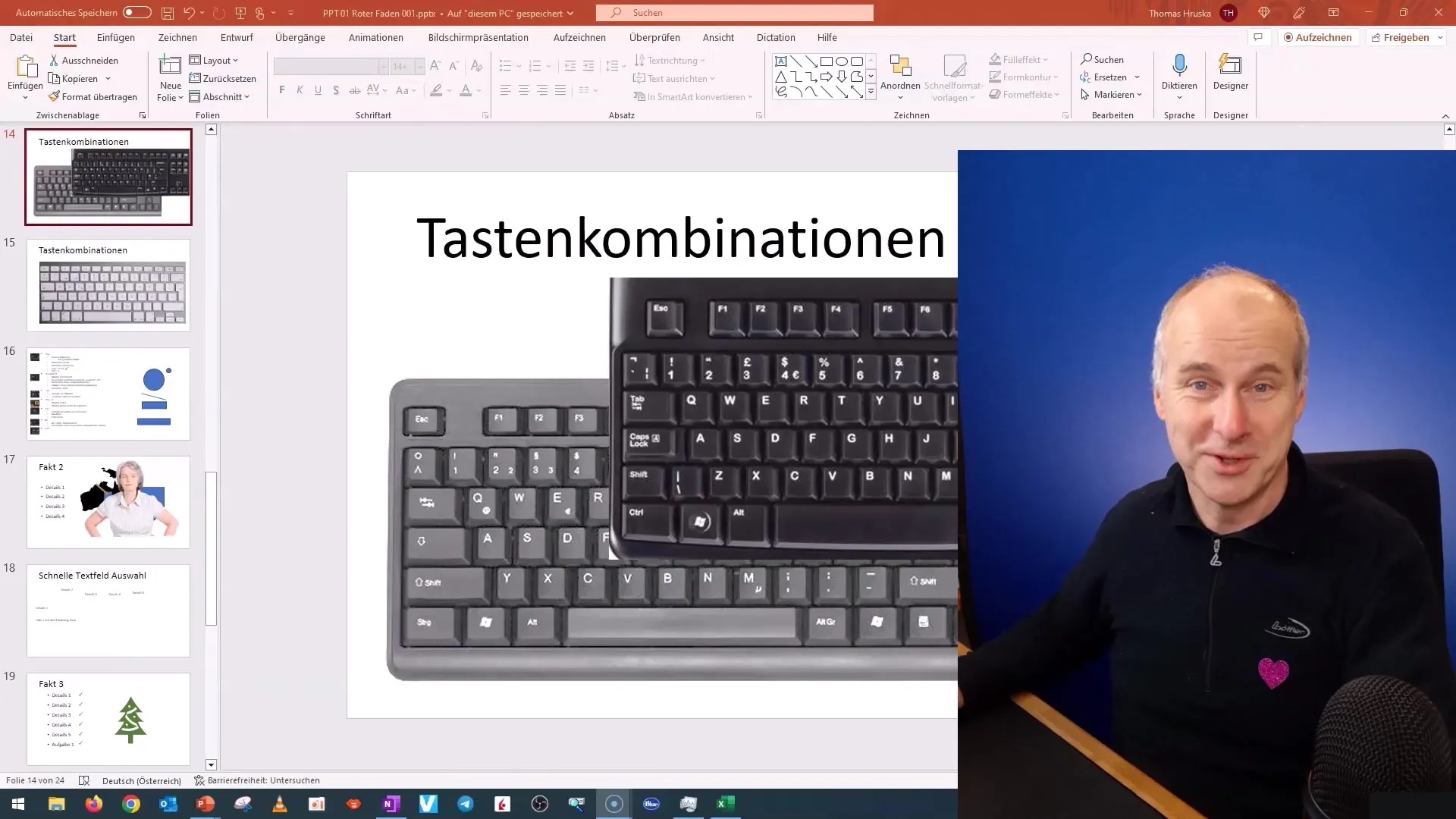
To start multi-selecting, hold down the control key and click on the desired objects. This works in a similar way to using the plus and minus signs to add or deselect items. This allows you to select exactly what you need without losing other items.
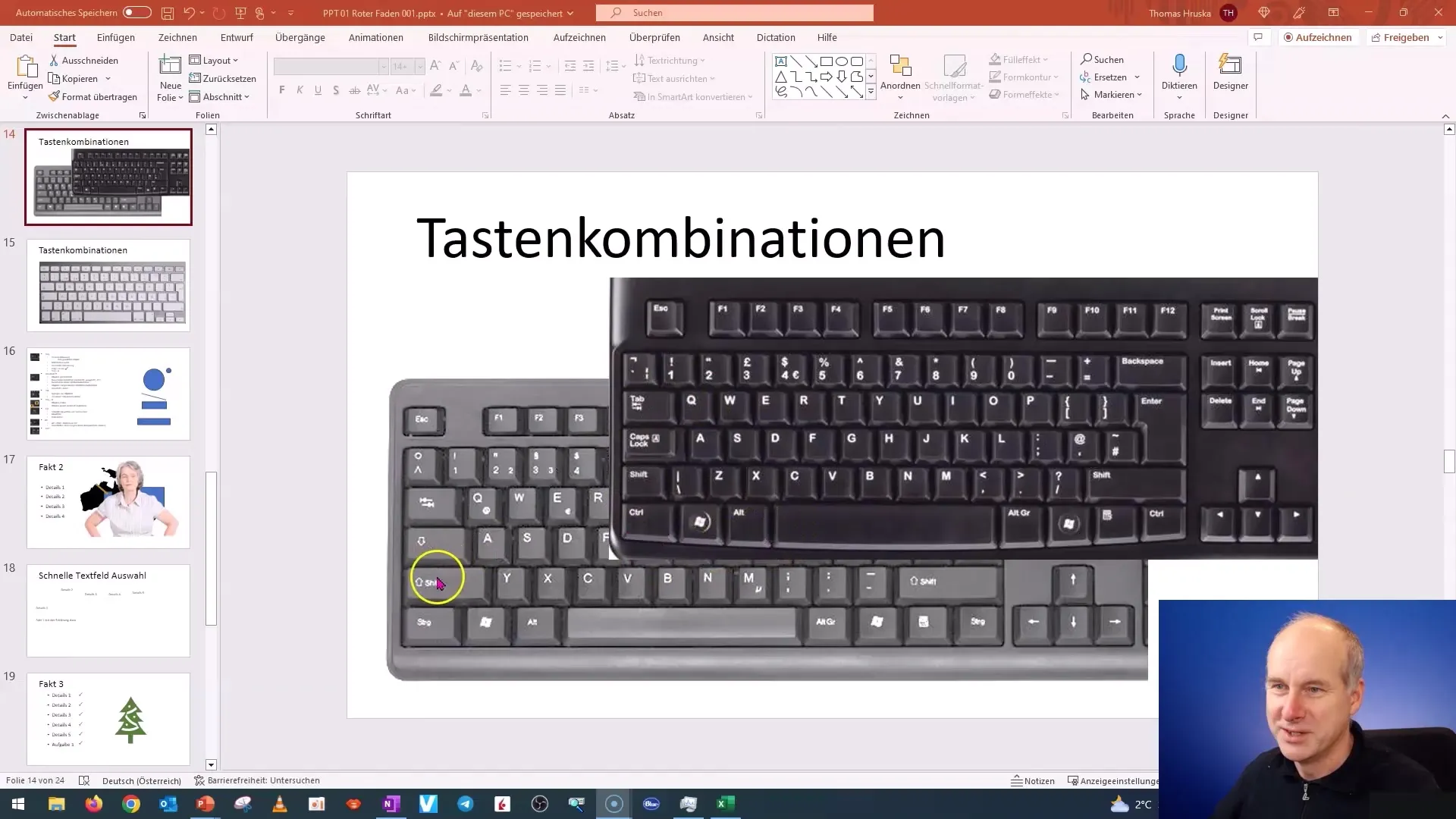
You can also use the control button to deform the objects. Drag an object by one of the corners while holding down the control key to maintain the proportions. If you also hold down the Shift key, the proportions are always retained when you change the size. This way you can ensure that your graphic is not distorted.
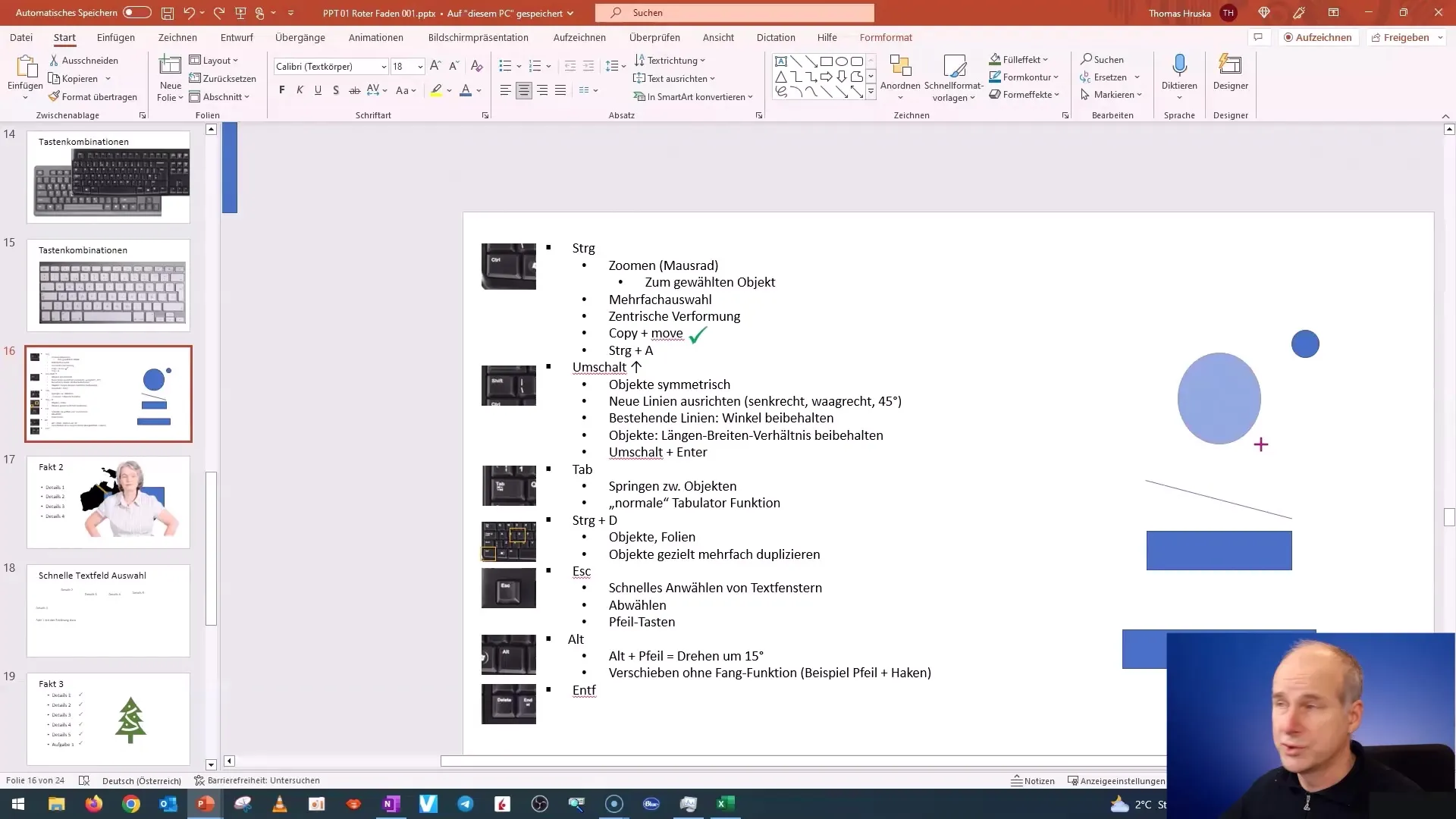
It is also important to use the "Copy and Move" function. Hold down the control key while moving an object to the desired position. This copies the object and keeps it in the new position, saving you a lot of time and effort.
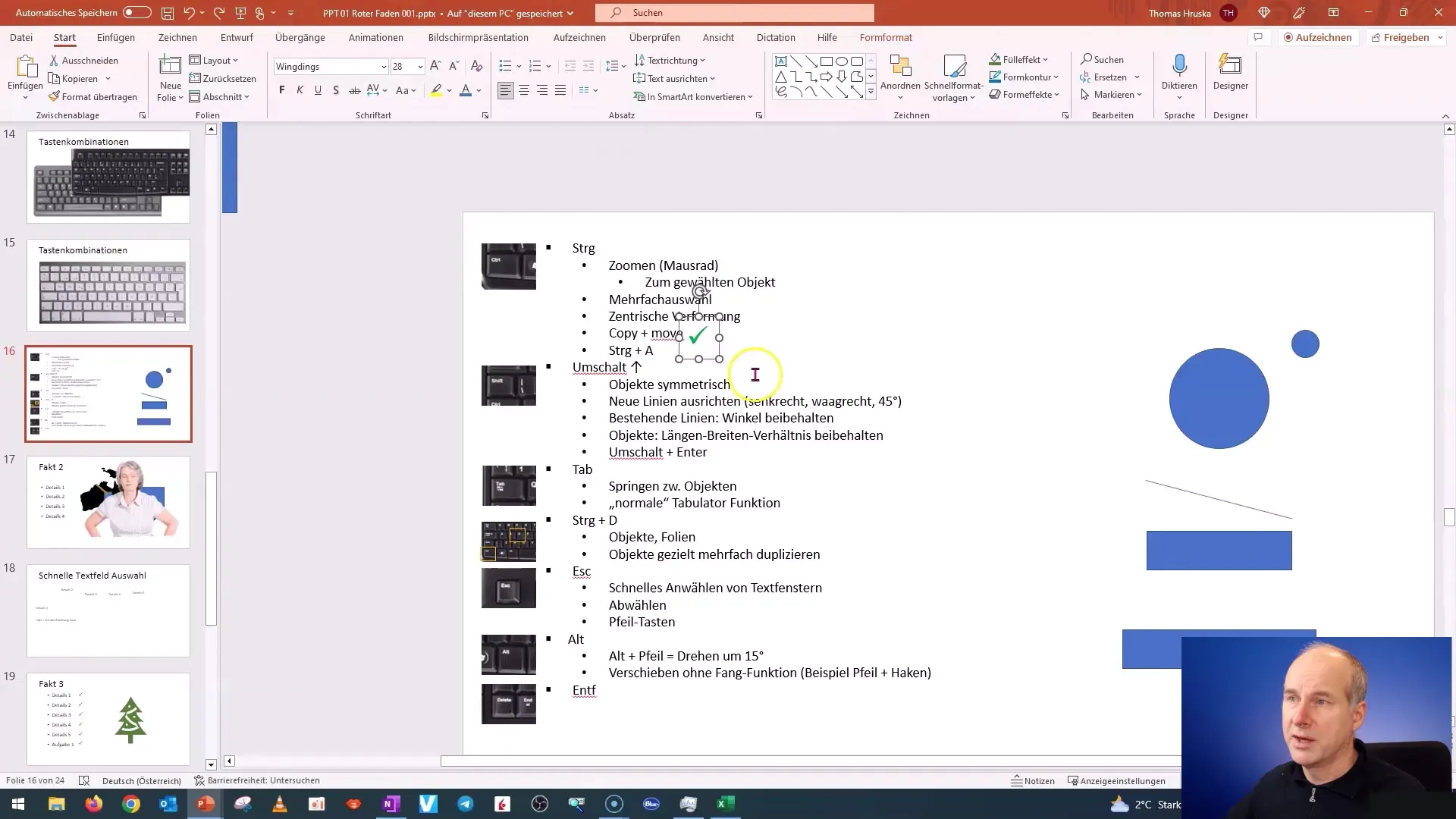
To select all objects on a slide, you can use the key combination "Control + A". Once everything is selected, you can use the control key to deselect individual objects or make a selection with a selection frame to mark only certain objects.
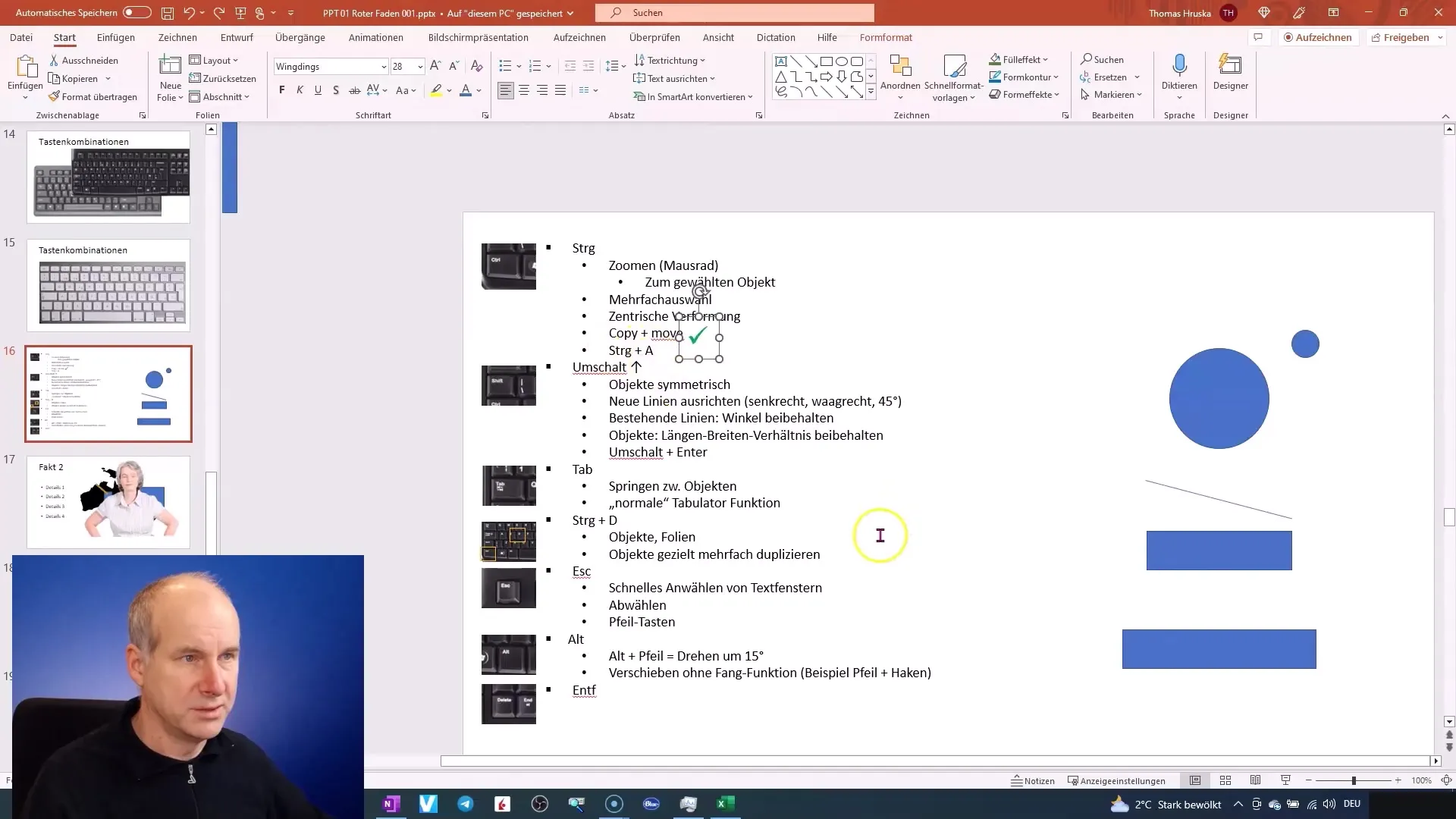
Another trick is to use the Shift key to draw or move lines symmetrically. When drawing a line or moving an object, hold down the Shift key to ensure horizontal or vertical alignment. This is particularly helpful for creating straight lines.
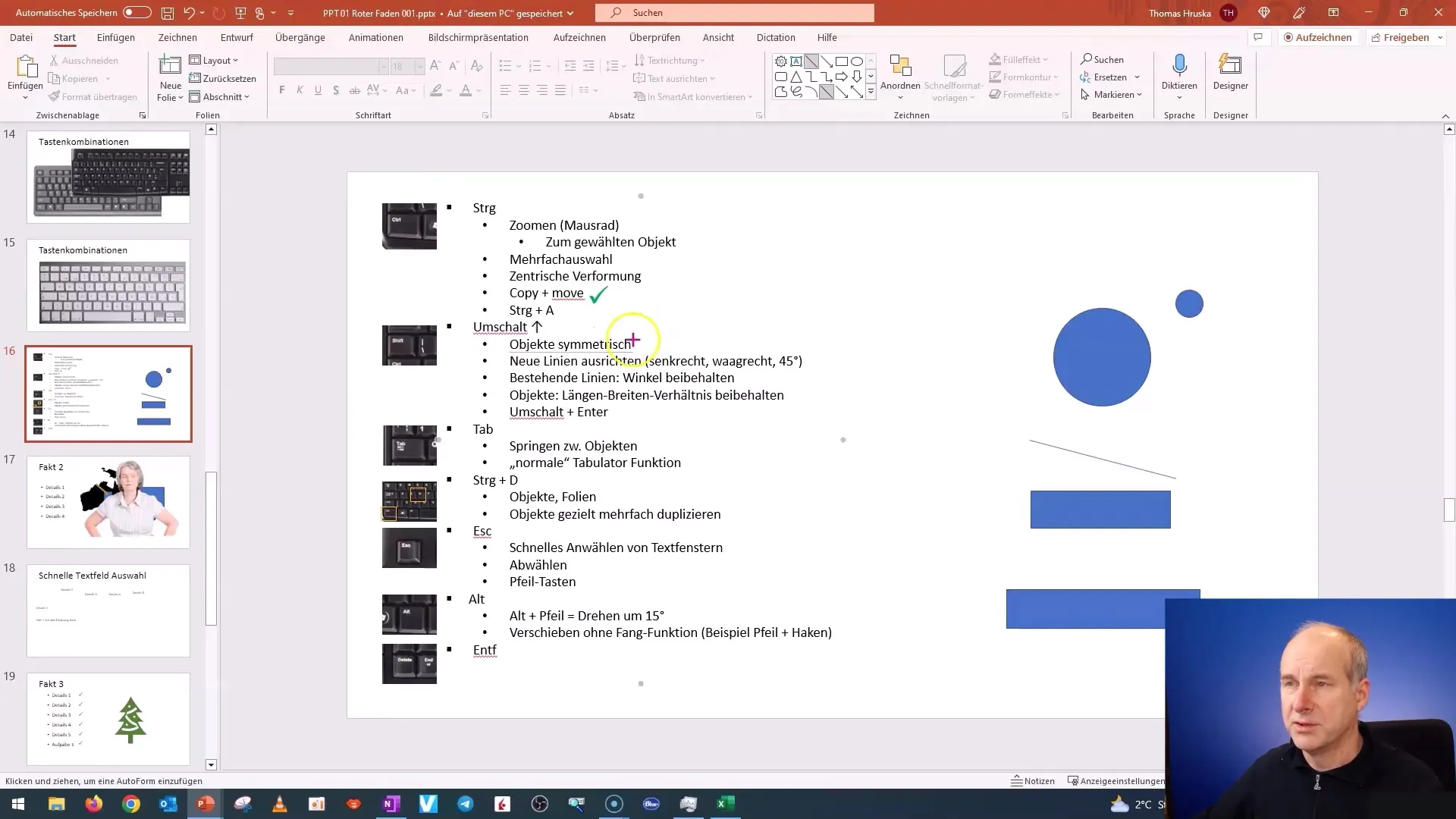
If you want to work with existing lines that have a certain angle, you can maintain this angle by also pressing the Shift key. This way you can make sure that the line stays at the same angle without having to make a new pass.
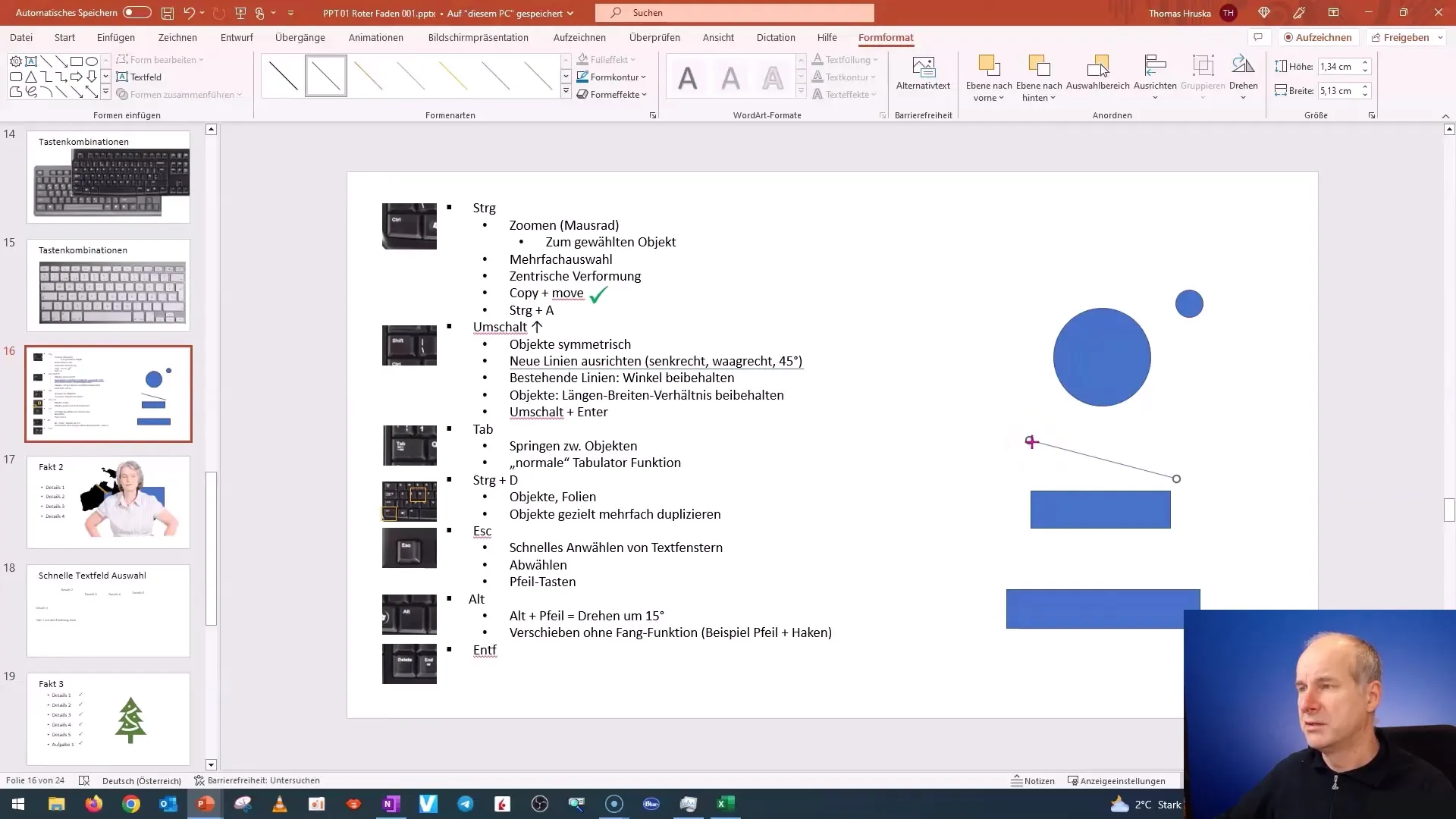
When it comes to deleting objects, it is sometimes easier and quicker to use the undo function (Ctrl + Z) than to look for a delete option in the menu. You may find that many commands can be executed much faster using keyboard shortcuts.
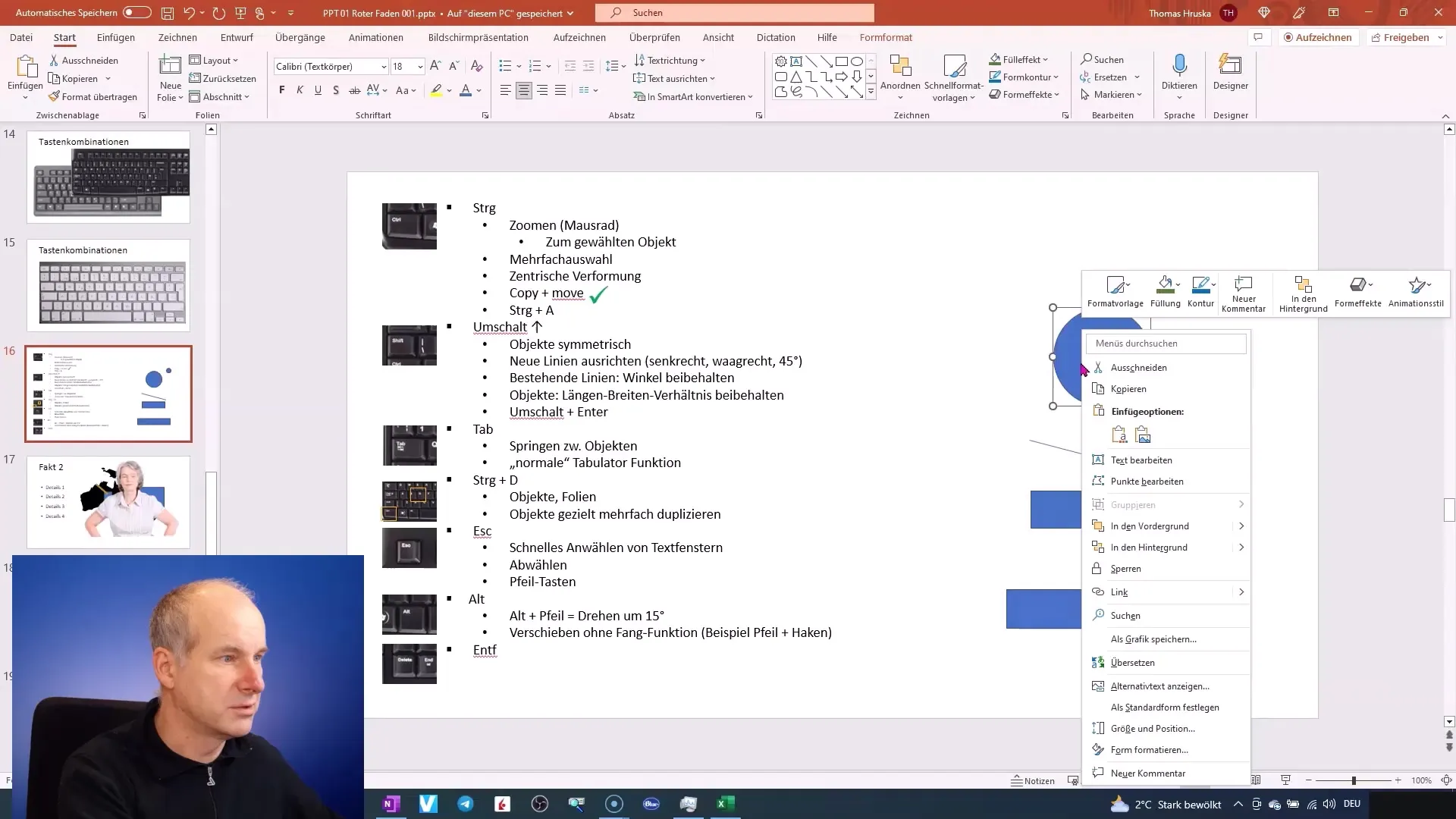
An advantage of using keyboard shortcuts that should not be neglected is the ability to use the Alt key to bypass the snapping behavior of objects. This allows you to make free movements of objects in PowerPoint while keeping the mouse pressed.
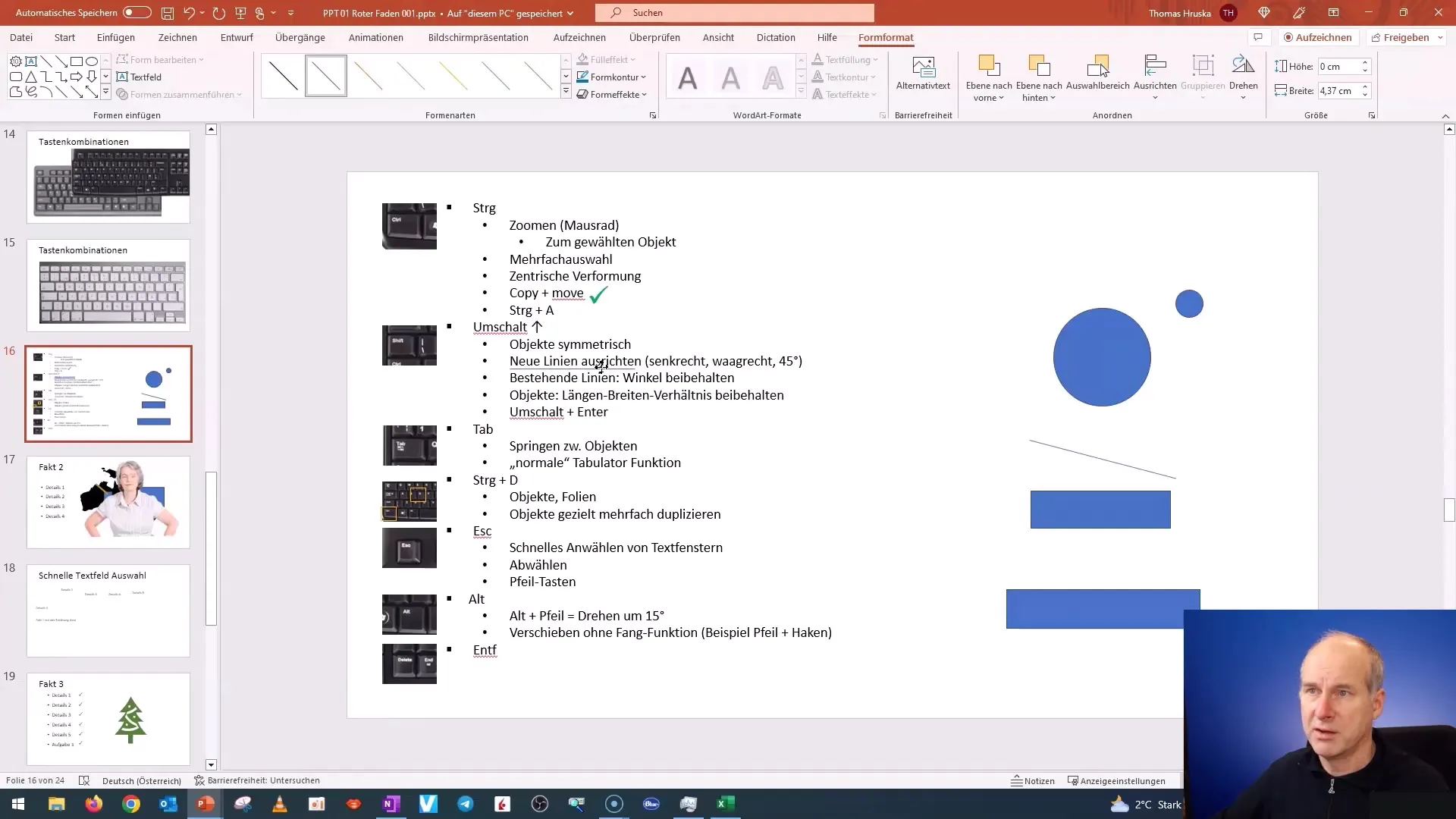
Working with text in PowerPoint can also be optimized. Hold the Shift key and press the Return key to leave the text under the current bullet without starting a new bullet point. This keeps the formatting consistent.
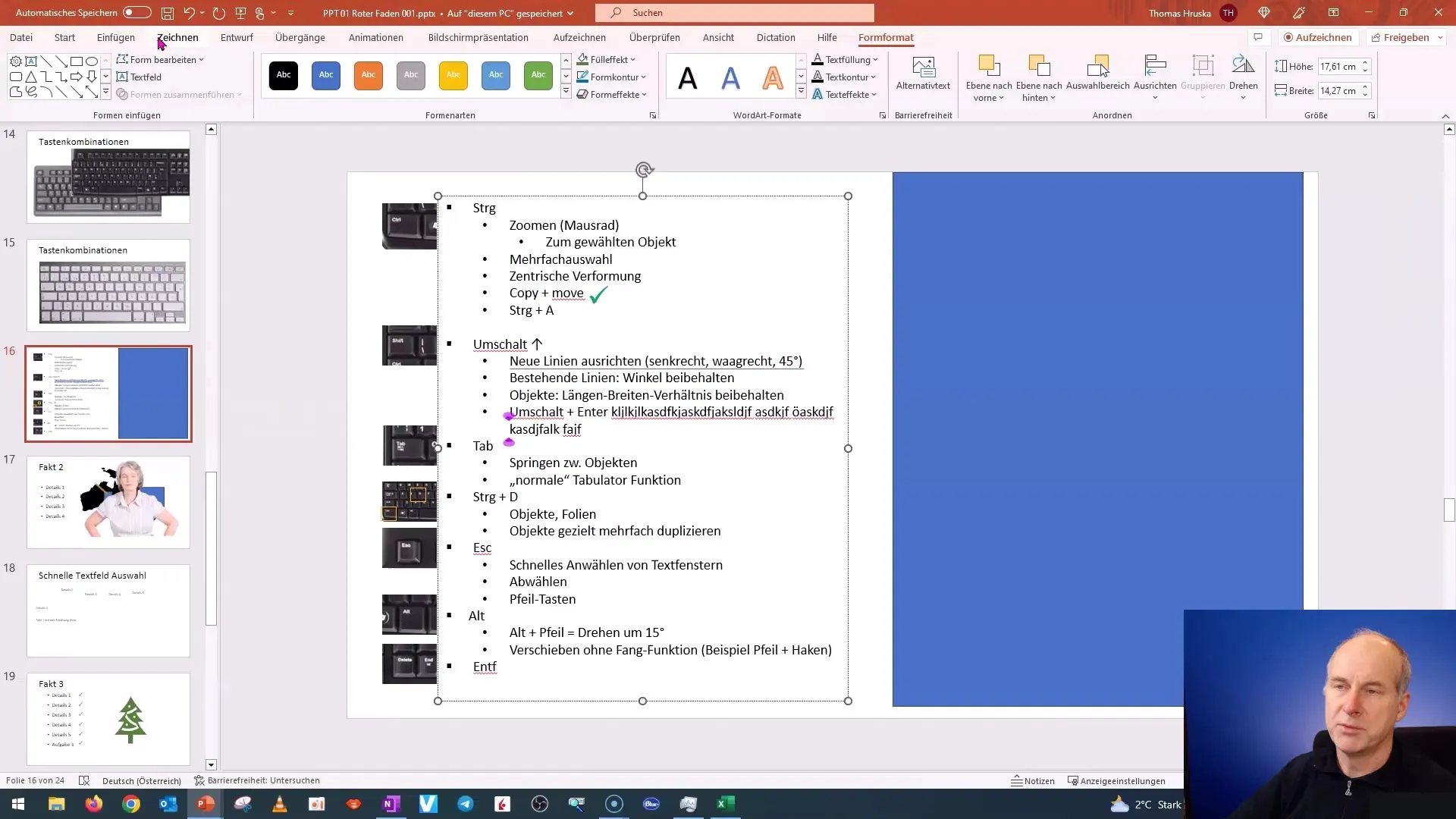
Summarizing
In this guide, you have learned the importance of using keyboard shortcuts in PowerPoint. You have learned about different combinations for selecting, reshaping objects and editing text. Continuously practicing these combinations will help you to work more efficiently and save time.
Frequently asked questions
How can I select multiple objects in PowerPoint?Hold down the control key and click on the desired objects.
How do I keep the proportions of an object when zooming in or out?Hold down the Shift key while dragging the object at one of the corners.
How can I select all objects on a slide?Press "Control + A" to select all objects.
What do I do if I have made a mistake?Use the undo function (Ctrl + -Z) to undo the last step.


